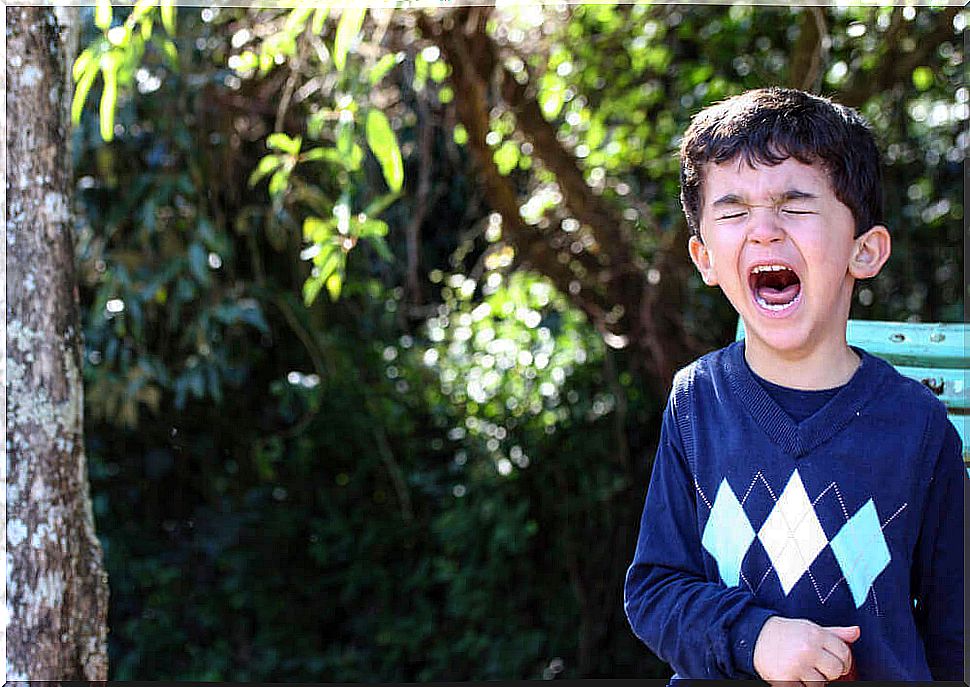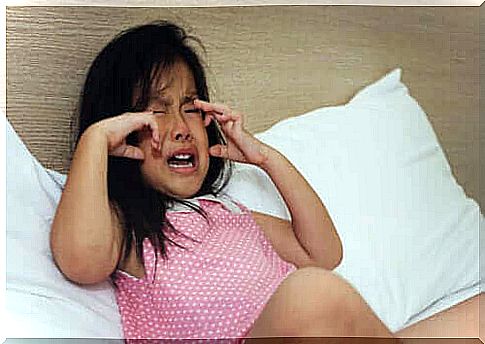Signs That Your Child Is Going To Have A Tantrum

There are certain signs you may be aware of that may indicate that your child is going to have a tantrum. Once you have learned to recognize the signs, you can also work on preventing tantrums.
Supporting children when they are in the middle of a tantrum is one of the biggest challenges parents face. All children have tantrums. This means that all parents have to go through the moments when their children have emotional crises.
When your child experiences one of these difficult episodes, it is likely that you will feel frustrated and hopeless… but, that should be one of your last worries. What matters most in these moments is understanding that tantrums are a normal part of children’s development. And, you need to be prepared to deal with them appropriately.
It is fundamental that parents understand that their children do not get a tantrum to irritate them or make them angry on purpose. It’s just their way of showing, through their actions, that they are emotionally overwhelmed and need comfort and guidance to re-establish their inner balance.
The way you react as a parent has a huge impact when it comes to improving the behavior of your children.
Outbursts of rage are not anyone’s fault
When your child has a tantrum, you may feel that the whole situation is your fault. It is not the case. Rage attacks are a normal part of a child’s development. They do not take place because you are a bad parent or because you have done something wrong.
Fortunately, most emotional crises occur in children after a series of signs. These are red flags that reveal that your child is going to have a tantrum. Below, we will go into detail about the most common signs that can lead to a tantrum. That way, you can see them coming and try to prevent a tantrum from occurring.

What factors can contribute to a tantrum in children?
There are several factors that can contribute to a child’s tendency to have a tantrum at any given moment:
- Hunger. Young children get hungry, just as adults do. It will be helpful to have healthy and filling snacks on hand and anticipate the times when your child needs an extra shot of energy when it comes to preventing tantrums.
- Exhaustion and fatigue. The more tired your child is, the more he or she will have problems with communication and reasoning in difficult and challenging situations.
- Temptation. If you take your child to the supermarket and pass the candy shelf when he or she is hungry and you refuse to buy something sweet, it is a sure recipe for disaster.
What signs should I keep an eye on to know if my child is going to have a tantrum?
Now, we will talk about the specific signs that may indicate that your child is going to have a tantrum. That way, you can act to prevent it from happening.
Problematic communication often precedes tantrums
Often, children become very angry because they do not have the capacity to express themselves or understand properly. If you notice that your child is struggling to express his or her point of view or ask for what he or she wants, a tantrum may occur in the near future. Therefore, you need to help him or her express themselves.
Physical signs of frustration
When children start hitting toys, throwing objects or raising their arms in frustration, a storm is, presumably, brewing. When arousal begins, it begins to affect children’s bodies and it reveals that they are reaching their limit.
Children often shout before they have a tantrum
When children begin to raise their voice, it can be a sign that they are having problems on an emotional level. When they start shouting to express their anger, frustration, etc., then you should probably intervene to keep them from having a tantrum.

Hit or kick objects or people
Blows, kicks or even bites are all common in early childhood. It is children’s way of learning to navigate through interaction with other children who also have a limited way of communicating.
This type of behavior is a sign that your child is having difficulty achieving what he or she wants, or trying to stop other children’s behavior. As a result, he or she may feel pushed beyond his or her limits.
A decrease in the child’s ability to pay attention before a tantrum
You should never expect your child to be able to pay attention for a long time at a time. However, when a child clearly loses focus at a time when you are asking him or her to do the opposite, the frustration begins to grow.
Use distraction and help your child find an activity he or she finds more interesting. That way, you will be able to prevent imminent crisis.
To feel out of control
Just as adults feel more comfortable when they can control their circumstances, so do children feel the same way. If children find themselves in a situation where they do not have the right to choose, it can arouse emotions in them that are difficult to deal with. And, sooner or later, they may end up having a tantrum.
It is also possible that your child becomes more tense, cries or repeats himself many times, as a result of emotional insecurity. Children can also become anxious in the face of unforeseen changes in their routine. All of this can be a sign that your child is going to have a tantrum.









